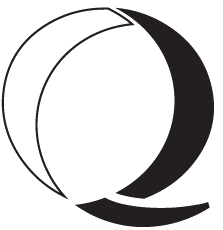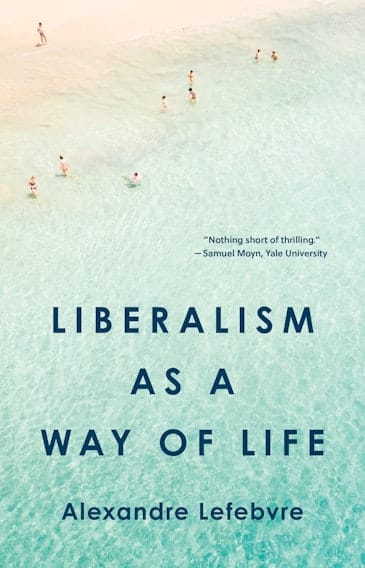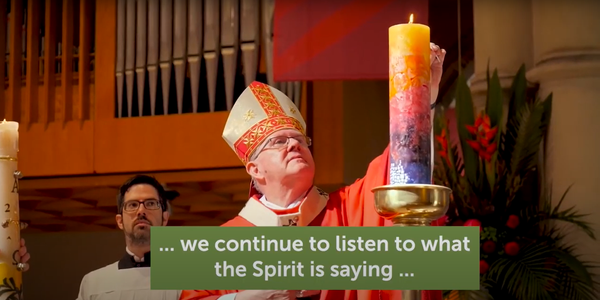How to stop fleeing the present
Somewhere between the sublime and the practical, there's a way for human beings to avoid running away from time. Two new books explore how...
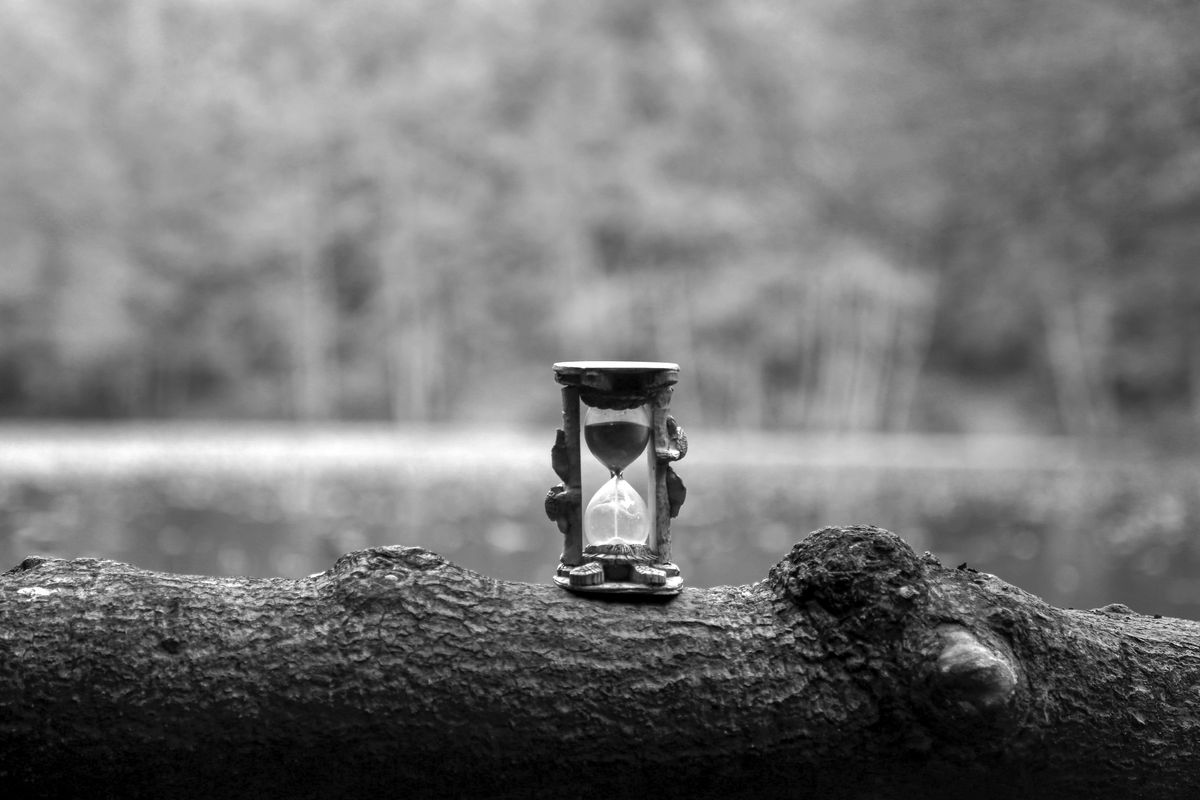
Tranquility by Tuesday: 9 ways to calm the chaos and make time for what matters by Laura Vanderkam. Penguin Publishing Group, 2022, 256pp.
Eternity in the midst of time by Fr Wilfred Stinson OCD. Ignatius Press, 2019, 215pp.
I hoped to write this article by around mid-January. I finished it in April and now, by the time it’s published, we are midway through July. Half the year has already slipped away. I know I’m not the only one who finds it hard to shake off an ever-present sense of feeling under time pressure, along with a touch of melancholy at the thought of time passing. There’s a reason it’s a cliché to say that there aren’t enough hours in the day.
While many people struggled with having too many empty hours during the lockdowns early in the COVID pandemic, others like myself were relieved to have a break from a pace of life that often feels frenetic. In our household of two full-time working parents and five school-aged children it was a much-needed circuit breaker in 2021 to suddenly have hours and whole days of unallocated time to do with as we pleased.
We filled backpacks with snacks and drinks and explored our allowed 5km radius from our house on foot on the weekends, following the ribbons of bush tracks and creeks through our part of suburban Sydney.
We began to recognise the people and their dogs who live nearby, the habits of the trees and shrubs in their gardens. We marvelled at the different kinds of birds that visited our own backyard, the schedules they kept, what they ate and how they ate it. We had more long, leisurely conversations with friends and family than is usually the case. I still vividly remember some of them.
It was also a relief when the lockdowns were lifted. But when friends in similar circumstances to us commented wistfully last year that everything snapped back to “too busy,” I had to agree. Some people seemed to come out of the long lockdowns feeling that they had lost precious time and wanted to make it up as quickly as possible. Some came out feeling that we had somehow missed opportunities during the restrictions to re-think how we might re-structure our society in a way that would honour what many working people found they valued during the lockdowns: a more flexible working life which made it easier to carve out time for relationships, hobbies and other interests and commitments.
"Near enough is good enough. A daily exercise routine or practice on a musical instrument might be the goal, but three times a week is also perfectly fine."
Researchers have confirmed that people’s perception of time runs faster when they are anxious. A 2020 study found that when anxiety was induced in subjects (with a threat of a mild electric shock), they underestimated the span of time between two stimuli. It’s this existential angst about the pace of modern working life that these two books tackle head on.
Time management author and mother of five Laura Vanderkam brings a combination of brisk cheerfulness and practical realism to her latest self-help offering, Tranquility by Tuesday. She is aware that it’s not glib lifehacks or efficiency tips people who feel too busy are after, so much as a desire “to stop feeling like they’re either racing against the clock or wishing time away.”
The book is a distillation of her work in time management over the last decade or so, setting out her nine most promising strategies that have worked in her own life growing a career alongside a large family. They were also trialed by 150 people who volunteered to apply them over 10 weeks as part of a time use and perception study she ran in 2021, and accounts of their experiences are liberally sprinkled throughout the book.
On starting the program, she notes, these people saw many good things about their lives, but felt there was little time for things that would bring more joy and meaning to their days. Life is not lived as an amorphous reality, but in hours and days. It’s not the tranquility of a silent mountain-top retreat she’s promising, but what is expressed in the famous AA prayer: “Serenity to accept the things I cannot change” and “courage to change the things I can.”
“The goal is tranquility even when life is complicated, challenging, and occasionally chaotic,” she writes. “We are never going to get extra hours in the day, so we need to learn to work with what we have.”
Her suggestions include giving yourself a bedtime (an early bedtime is how grown-ups get to sleep in, she says) a short session on Fridays to plan the week ahead, a burst of physical activity each afternoon (specifically, by 3pm), batching small admin tasks together, and taking one night (or morning) each week for a personally fulfilling activity.
Reminiscent of Marie Kondo’s advice to only keep what sparks joy, Vanderkam wants her readers to find what for them will bring joy into their average Tuesday and then make it happen. Something as simple as a five-minute walk around the office block between meetings can take us into “a jewel of a June day” and reset our mindset and energy levels for the rest of the afternoon.
Reassuringly promising that life is full of possibilities, even in the middle of commutes or Zoom calls, she is convinced that if we fill our lives first with what matters to us, we will naturally spend less time on “shower cleaning or email or whatever else seems to fill the hours”.
From investing more in our relationships to pursuing new interests or crossing items off our list of 100 dreams (another thing she suggests we try), even if things don’t go as planned, we will still have power to build the life we want. Underlining everything is her passion for planning, but she’s not scrupulous about it. Near enough is good enough. A daily exercise routine or practice on a musical instrument might be the goal, but three times a week is also perfectly fine.
Vanderkam is conscious that she’s speaking to a materially comfortable cohort, with suggestions that include things like asking one’s assistant to make low-value phone calls rather than making them all yourself. But it’s important to a full human life to have some sense of agency when it comes to how we spend our days, and Vanderkam’s cheerful and friendly reassurance that it’s within our power to do something to improve our experience of life if we really want to that is so attractive about her books.
Eternity in the midst of time

Catholic priest Fr Wilfred Stinson OCD has given us a different way to look at calming the chaos in a too-busy life. Like Vanderkam, he wants to examine how we should live in the time we have and insists like her too that it offers “tremendous possibilities.”
But rather than time being something we can observe and try to make the best out of, he presents the case that it is an experience that carries an invitation to engage with a mystery—the presence of God eternal who alone can transform our lives and bring joy and peace to ourselves and, by implication, those around us.
He takes a broader and deeper look at time and our experience of it, from the viewpoint of Christian scripture and theology, philosophy and science. In his book it’s prayer and self-awareness, not planning, which are key to living at peace within its flow and amid the pressures of modern life.
“Not to become is to be unfair to time, to deprive it of meaning."
The first part of the book includes a thought-provoking theology of time, drawing on writers such as Romanian Orthodox theologian Dumitru Stăniloae in explaining how we can gain insight into the meaning of time in relation to the trinitarian life of God.
In the Trinity, where there is perfect love between the Father and the Son there is no delay in the receiving and giving of love. “When God offers love to us, it is different. He waits for our Yes. Time is just this length and breadth of waiting. ‘Do you want this?’ God asks, and then he gives us “time” to mature toward a Yes.”
Thus time is a sign of God’s patience and an asset, giving us the possibility to develop in love without skipping over important phases in the process.
“Time is the divine environment that is appropriate for all who have not yet reached perfection but are in the process of becoming perfect,” writes Stinson. “Not to become is to be unfair to time, to deprive it of meaning. But for the one who knows that it is a question of becoming what he is, time is filled with eternity.”
There’s no radical dualism in passing time and changeless eternity. Eternity refers to God’s existence, which touches passing time at every moment. For the one who does not believe and trust in anything eternal or “fixed”, history becomes a meaningless event and the future aimless.
Time loses its eternal dimension and becomes “an evil force” when it’s manipulated to squeeze more out of people who must work. “To force a person to work beyond his capacity without taking into consideration his individuality and personal rhythm is to block every possibility of development.”
Jesus Christ, described in Revelation as the alpha and the omega, the beginning and end of all, is the one who encompasses all time and who offers us a way to live in it that’s oriented to human flourishing.
There’s also a self-help element in Stinson’s book. He offers some tips on how to enter and remain in prayer, and return to it “resting in God’s time” when necessary throughout the day including when we find ourselves stressed at work. He touches on the popular practice of mindfulness in a section on being attentive to the present moment as the only place where we can meet God. But Stinson notes that despite the convergence of the major religions and many philosophers on the subject “this deep conviction does not prevent us from systematically fleeing from the present moment.”
Most of us are habitually absent from its potential, either locked into the past or looking to the future for an escape, but the church offers a “masterly synthesis” of time’s three dimensions of past, present and future at its Easter vigil liturgy and in the sacrament of baptism.
For the believing Christian, time is both kairos, a precious opportunity given by God in time, and adventus, “the future we do not need to create but is given to us from above.” It also keeps open the possibility for the healing of harmful memories.
Together, Vanderkam and Stinson offer a satisfying ecumenical treatment of ways to think about our time and engage with our experience of it, so as to make its passing more meaningful, happier and hope-filled for ourselves and others.
